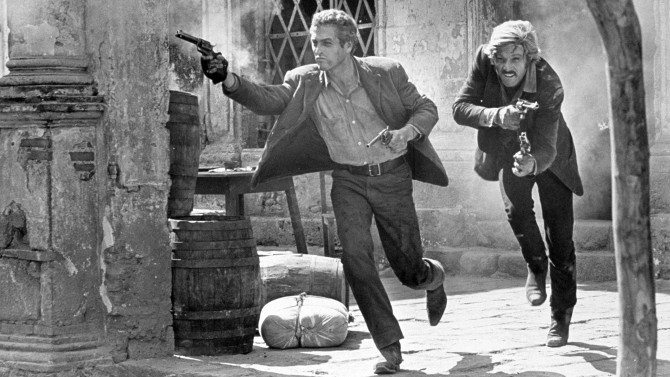
An Impossible Mission
How do you wrap up a franchise like Mission: Impossible? That is, if this even is the final installment... as they’ve made it sound (while at the same time, stars not named ‘Tom Cruise’ pipe up and suggest that might not be so). It has been twenty-nine years, with different writers and visionary directors – from twisty Brian De Palma and the action hair stylings of John Woo, to the lens flares of J.J. Abrams and animation expert Brad Bird, it was only about ten years ago that the franchise decided to opt for The Usual Suspects scribe Christopher McQuarrie for the final four. To return to that opening question once more, you could end with a Sopranos’ style cliffhanger, simply make another entertaining movie like the many before – like Everybody Loves Raymond did it with its final episode, or try to tie everything up in a neat little bow by bringing everything together as the Daniel Craig era did with James Bond. Well, it is definitely more along the lines of the latter example, with some distinct differences.
-
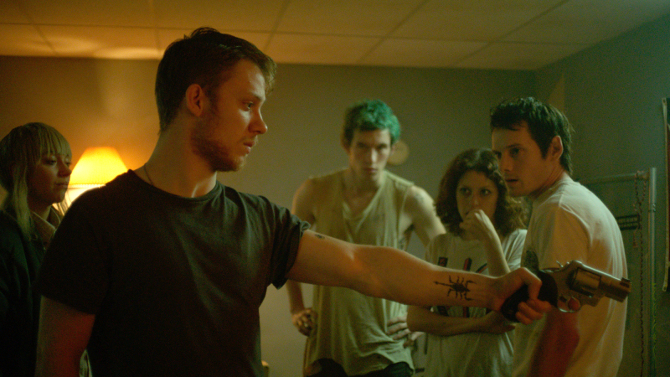
Through the Green Door
Green RoomJanuary 29, 2017Providing us with a window into a more than hairy situation, writer/director Jeremy Saulnier in many ways thrusts us through said glass directly into a predicament that no one would want to be placed in. The movie is 2015's Green Room, a horror thriller that follows a struggling heavy metal punk rock band – its members being Pat (Anton Yelchin), Sam (Alia Shawkat), Reece (Joe Cole), and Tiger (Callum Turner), as they learn that their most recent gig has fallen through. Tad(David W. Thompson), a radio DJ, suggests they head to a small secluded club where his cousin Daniel can set up a performance for them. Desperate, the group, who are running very low on cash, take the tip, making the somewhat lengthy drive into the severely wooded area. More than pleased that they have a paid show, they don’t care that it is at a neo-Nazi skinhead bar, while youthful exuberance even has them daringly perform a cover of Dead Kennedys’ "Nazi Punks Fuck Off". Though some beer bottles are thrown (clearly pissing off the politically right leaning patrons), things turn out okay, with their original material eventually winning the crowd over.
-
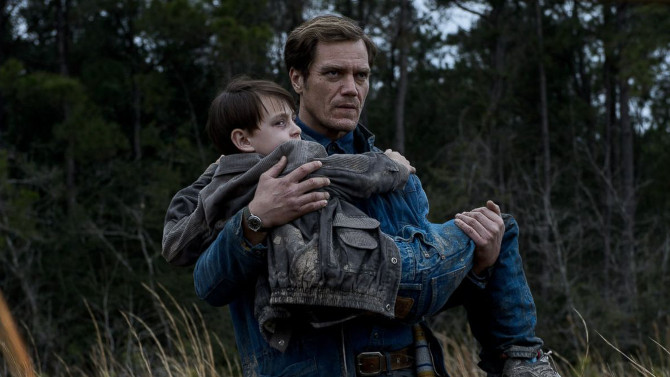
Midnight Ramblers
Midnight SpecialJanuary 27, 2017Revelling in the mysterious aura that it builds, Jeff Nichols’ Midnight Special is a love letter to the science fiction films of the 1970s and 80s. Bringing to mind motion pictures like Close Encounters of the Third Kind and E.T. The Extra-Terrestrial, the story begins in earnest as we join Roy (Michael Shannon) and Lucas (Joel Edgerton) – the pair have kidnapped Roy’s son Alton (Jaeden Lieberher) and are now being chased by a number of spooks. Roy has nabbed the boy out of the long clutches of his adoptive father, Calvin Meyer (Sam Shepard), the leader of The Ranch – a cultish group of religious individuals who have spun their lives around the happenings of the mystifying Alton. Meyer has sent two of his most trusted underlings to recapture the boy.
-
Star Pick with Michael Dickson
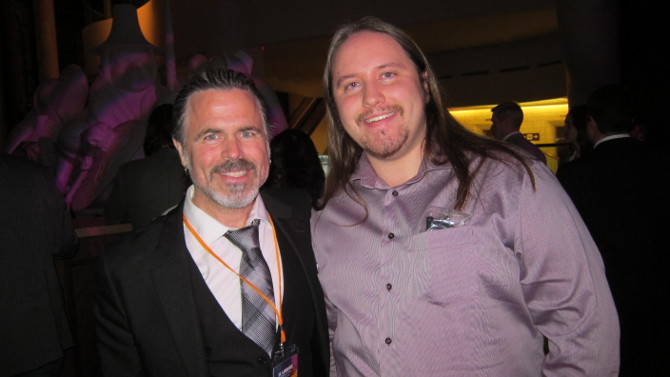 Butch and Sundance Ride OnButch Cassidy and the Sundance KidJanuary 24, 2017
Butch and Sundance Ride OnButch Cassidy and the Sundance KidJanuary 24, 2017One of the most prolific westerns (and sometimes argued to be the last great western) to come out of Hollywood, George Roy Hill adapts William Goldman’s script that brings to life the real, mythical-type figures of Butch Cassidy and the Sundance Kid. The background of the script is quite something, with Goldman sending it out to all of the studios – only one was interested (and that was if he made a major change to it). Instead, a few minor adjustments were made, after which Goldman discovered that every studio in town now desperately wanted it. In the end, it was 20th Century Fox President Richard D. Zanuck (son of co-founder Darryl F. Zanuck) who purchased the screenplay for a whopping 400,000 dollars (the biggest sum ever spent on a script up to that point) – and 200,000 higher than he was allowed to spend. Putting his job on the line, it was a wise choice, as it became the highest grossing motion picture of 1969. Goldman ended up winning the Academy Award for Best Original Screenplay. Originally titled ‘The Sundance Kid and Butch Cassidy’, Zanuck didn’t find that the title sounded right when it was reversed to its final iteration – funnily enough, it now feels utterly awkward in its original form.
-
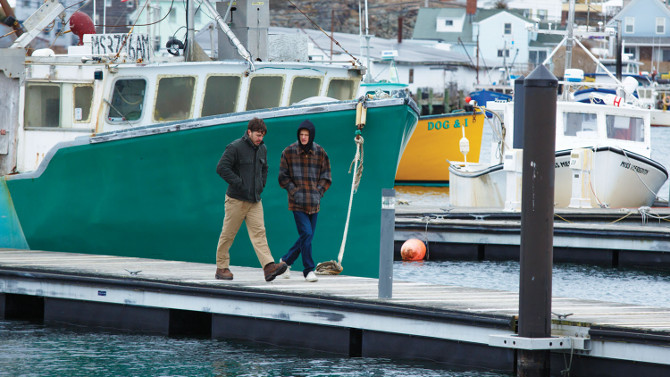
Dealing with Seasickness
Manchester by the SeaJanuary 22, 2017Utilizing the same name as the quaint village in which it is set, Manchester by the Sea depicts the lives of a family struggling with the recent death of a father and brother. The story follows Lee Chandler (Casey Affleck), a man wallowing in a morass of pain, sorrow and apathy. The quiet, introverted gent works as a handyman in Quincy, Massachusetts, though soon gets a call that his brother Joe (Kyle Chandler) is in the hospital. Rushing to Manchester, with its clapboard houses and brisk, windy, wintery weather, he is too late. Having the unenviable task of tracking down his nephew Patrick (Lucas Hedges) to tell him the dispiriting news (he finds him at hockey practice), he soon discovers that his brother has left him in charge of raising the sixteen year old. While in the picturesque locale, people point, stare, whisper and snarl at the former resident (a mystery that will, in its own fine time, be revealed).
-
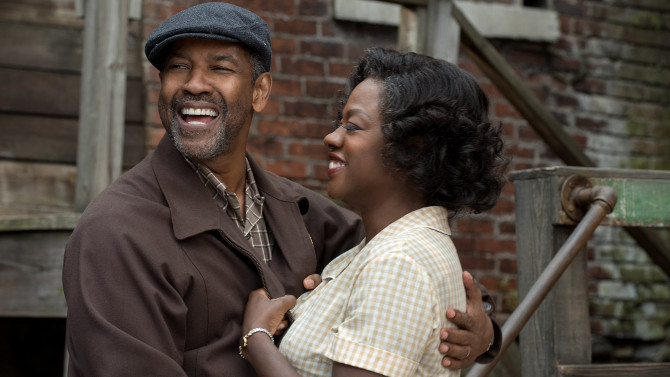
Don’t Let This Fence Keep You Out
FencesJanuary 21, 2017Based upon a stage play, Denzel Washington utilizes August Wilson’s adaptation of his own drama Fences to tell an engrossing story of an African American family growing up in the 1950s. Both literal and figurative, Troy Maxson (Washington) is building a fence in his backyard, though it is also a symbolic barrier placed up to guard against his own projections of the impending Grim Reaper (fighting off a serious case of pneumonia, aka. Death, at a young age, he is constantly vigilant for his return – though not afraid in the least). He enjoys the chess match that they play over time. It is also a powerful allegory for the walls he builds between himself and different members of his family. On the opposite spectrum, it is also a way for his wife Rose (Viola Davis) to put up something that will protect her family, keeping them safe on the inside, while keeping unwanted dangers at bay.
-
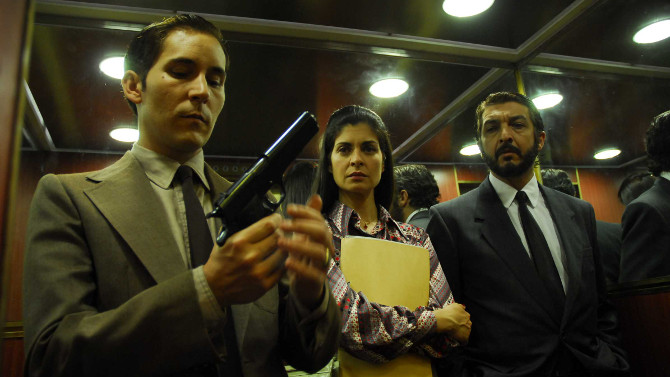
The ‘Eyes’ Have It
The Secret in Their EyesJanuary 17, 2017The saying ‘the eyes are the windows to the soul’ is perhaps no better explored than in the Argentinian Academy Award winning (for Best Foreign Language Film) 2009 motion picture The Secret in Their Eyes. Though the face is often inscrutable, as many put on masks to hide their true feelings from those around them, the eyes truly show the love, hate, lust, passion, pain regret and confusion that lies just below the mysterious facade. Co-written, directed, edited and produced by Juan José Campanella, the story follows retired criminal investigator Benjamín Esposito (Ricardo Darín) as he contemplates the innumerable hours he spent on the Liliana Coloto (Carla Quevedo) murder case (it is his white whale) by way of writing a novel. Struggling with a proper beginning, he visits Judge Irene Menéndez Hastings (Soledad Villamil), who he worked with all those years ago (the murder took place in 1974).

